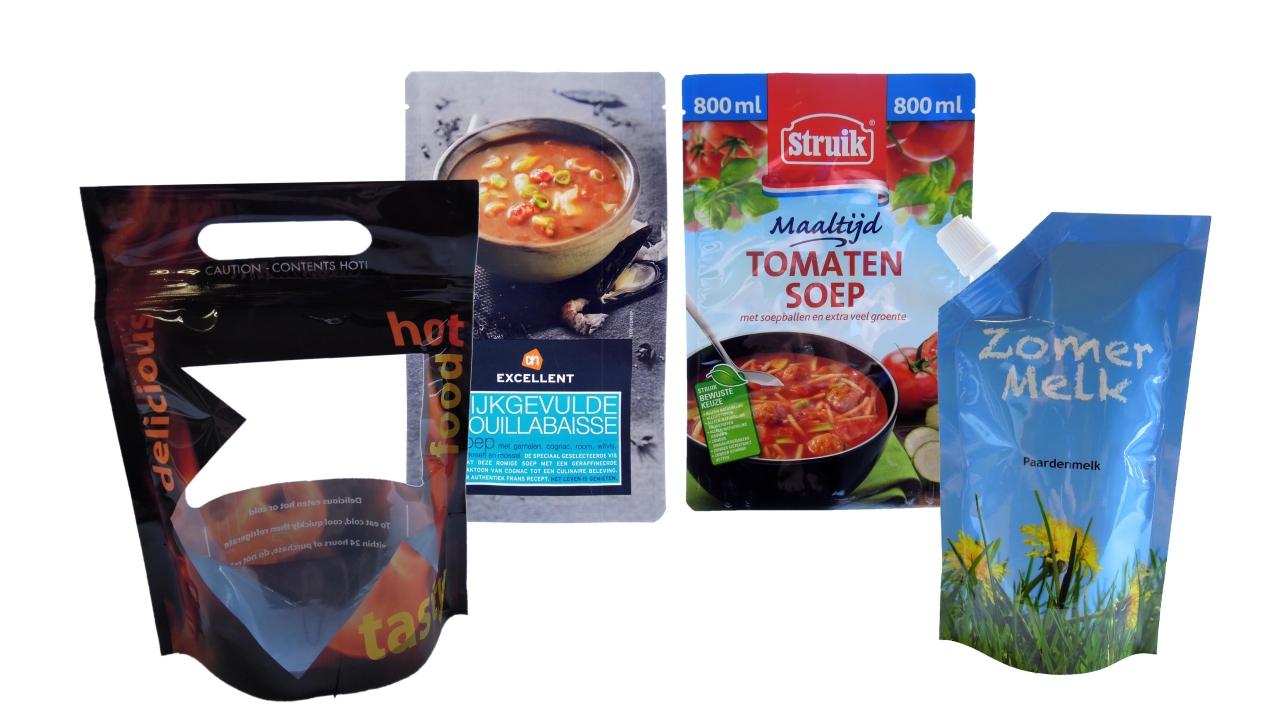Standing up for pouches

Glenn Proctor, technical sales manager at Tenza Technologies, tells David Pittman how stand-up pouches fit the changing packaging market.
The UK’s Tenza Technologies is launching a new range of pre-formed stand-up pouches at next month's Packaging Innovations show in order to target growth in the market.
Stand-up pouches are found across the retail spectrum, from the pet food aisle to fresh food chillers.
Stand-up demand
 Coverage of the growth in stand-up pouches over the last year can be read through Package Print Worldwide, with Amcor winning awards for water packaging designed in that style and Smurfit Kappa offering Pouch-Up (pictured, right) as an alternative to glass in the beverage market.
Coverage of the growth in stand-up pouches over the last year can be read through Package Print Worldwide, with Amcor winning awards for water packaging designed in that style and Smurfit Kappa offering Pouch-Up (pictured, right) as an alternative to glass in the beverage market.
Market research company Freedonia has reported that stand-up styles will lead pouch growth in the US to 2016, with the overall market’s value projected to increase 5.1 percent a year to US$8.8 billion. At the same time, stand-up pouch demand is forecast to expand 7.2 percent annually to a market valuation of US$2 billion.
Freedonia said this will be driven by faster gains stemming from sustainability, functional and marketing advantages over alternative packaging media.
Smurfit Kappa claims similar benefits with its Pouch-Up product, noting that the lightweight, free-standing beverage pouch has a 100 percent printed surface for branding, a dispensing Vitop tap that extends the life of drinks after opening and a carbon footprint of just 20 percent of a traditional glass container.
Tenza is following suit with its marketing of stand-up pouches by claiming that, in comparison with more traditional types of packaging, such as tins, jars, bottles and cans, stand-up pouches offer packaging volume reduction due to their thin profile and high ratio of surface area to volume, as well as cost savings due to their compactness and light weight. Other advantages include shape and printing area, and the variety of opening features and closures available.
Tenza stand-up pouches can be printed in up to 10 colors, with a varnish if required, allowing virtually unlimited design possibilities and a premium look that aids on-shelf marketing appeal, Tenza says.
Its growth in the market will be driven by Glenn Proctor, technical sales manager, who has been recruited to push the new format.
New markets
Tenza is a UK manufacturer and supplier of self-adhesive and non-adhesive packaging products for the industrial and food packaging sectors, as well as the office products, stationery and label markets.
Stand-up pouches are a new addition to its portfolio, which has previously centered on “enclosed document” envelopes, namely Tenzalopes, as well as self-adhesive and pressure-sensitive label stock for the label printing industry.
Its stand-up pouches are not directly manufactured in the UK; instead it works with an overseas purchasing partner to supply the market. This means it can satisfy small orders, giving the market the flexibility to trial stand-up pouches as a packaging solution.
With Proctor, Tenza has inherited strong experience as he has worked at Alcan Packaging, and then Amcor after its takeover, as well as spending time with Rexam.
‘We have hit the ground running,’ Proctor says. ‘After establishing a solid and sustainable relationship with our purchasing partner overseas, Packaging Innovations will be the launch of the range and we are working hard to get the brochure and website prepared.
‘Since my joining Tenza last October, the team and I are already following up on a number of positive leads and prospects. We hope to receive our first orders by the end of the first quarter this year. ‘
 Proctor says stand-up pouches have come a long way since their introduction to the UK market, from weight reduction credentials to a means to provide new and innovative consumer packaging.
Proctor says stand-up pouches have come a long way since their introduction to the UK market, from weight reduction credentials to a means to provide new and innovative consumer packaging.Growing demand
The growing demand for stand-up pouches is a trend Proctor is looking to capitalize on, with their increasing use to replace cans and jars as packaging with a long shelf-life, plus their ability to withstand chilling during storage and heating during cooking, including microwaving.
He notes that there are some markets for pouches, such as ready meals and wet pet food, already served by key suppliers, like Amcor and Mondi.
To avoid competing in saturated markets, Proctor plans to pitch Tenza’s offering at businesses looking for small volumes, and at helping start-up food ventures where the volumes are too low for large suppliers to service.
One of the first markets Proctor is looking to tap is cleaning products for the automotive market. This is an area that predominantly uses rigid packaging in the UK, but other regions, such as Scandinavia, have shown that there is the potential for pouches to come in and take a share of the market.
Shell is one of those already offering such products in pouches in the UK, and Proctor hopes others will follow suit. However, he is aware of the challenges faced introducing new products to an established market, so is starting conversations with contract packers to devise an all-in-one solution that will allow the market to test the response by British motorists to the change, and show how it can work, leading to them investing in the technology.
‘At Tenza we are leading the way in developing new applications for this consumer-friendly form of packaging,’ he says.
‘With our ability to offer small minimum order quantities and low origination costs, we are able to give creative retailers more flexibility and new ways to display their products in order to maximise on-shelf impact.’
Read more about substrates here
Read more features from Package Print Worldwide here
Register here to receive the free fortnghtly Package Print Worldwide e-newsletter, and to register to be sent the printed publication, also for free
Stay up to date
Subscribe to the free Label News newsletter and receive the latest content every week. We'll never share your email address.

